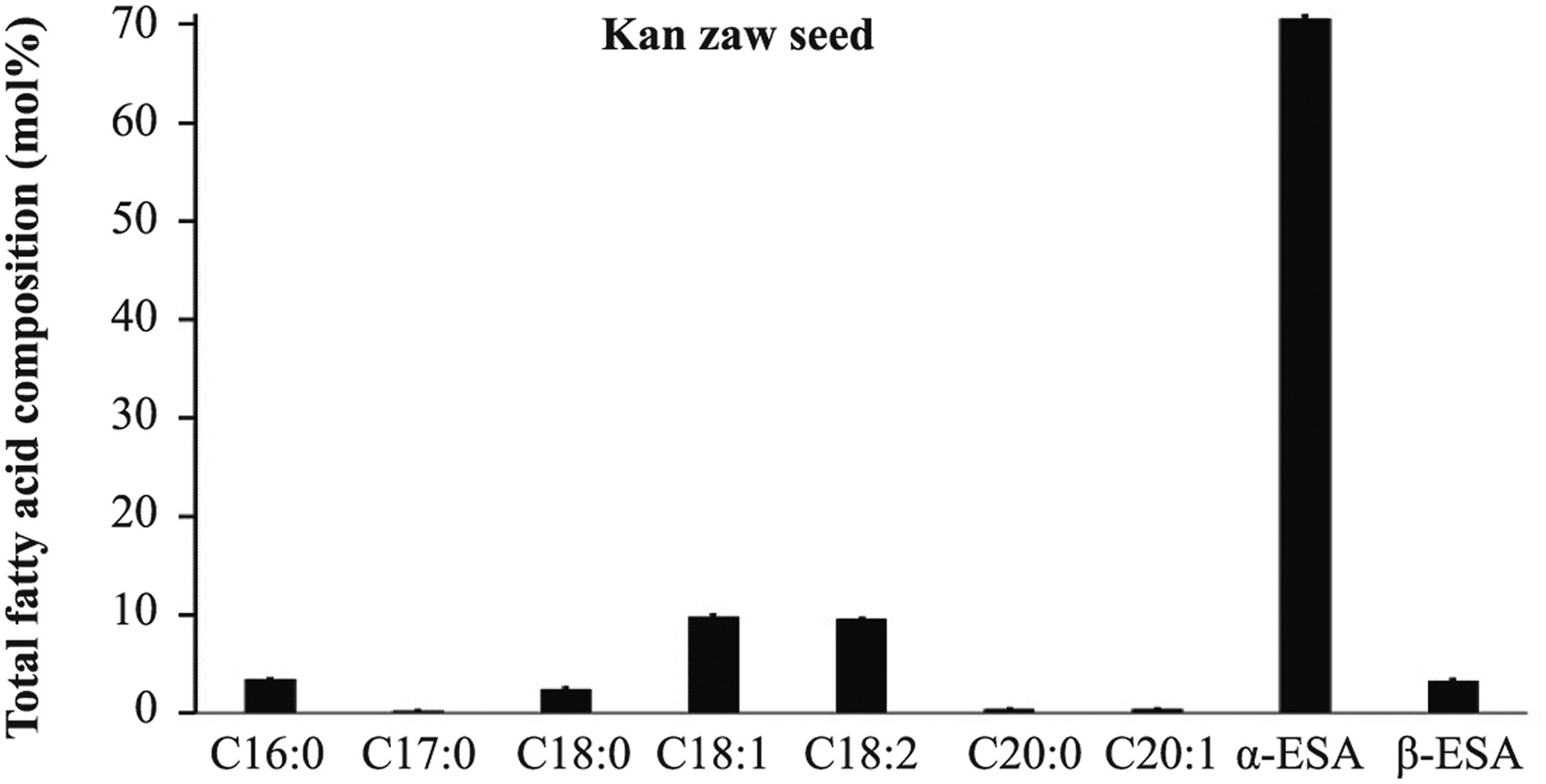Authors: Moe Moe Lwin, Ye Jin, Xianpeng Yang, Hao Shen, Chao Qi, Yizhong Wang, Phyo Phyo Zin Oo, Za Khai Tuang, Shiyou Lü, Wannian Yang
Payenapara lleloneura Kurz. (Kan-zaw), an endemic medicinal plant only found in Tanintharyi Region of Myanmar, is widely used in the treatment of various cancer and different ailments. In the present research, the seeds were phytochemical investigated for their nutritional potential for their use as functional foods or novel diet oil resources. Nutritional evaluation showed that the seeds are rich in fats and carbohydrates (soluble sugars and starch). Fatty acid analyses showed that the seeds accumulate very rich α-eleostearic acid (α-ESA, 18:3Δ9cis,11trans,13trans), an important conjugated fatty acid, up to more than 70 % of total fatty acids. The seed oil derived from the Kan-zaw tree contains approximately 3.25 % β-eleostearic acid (18:3Δ9trans,11trans,13trans), an unusual conjugated fatty acid that imparts a potent anticancer application and industrially important drying qualities to Kan-zaw oil. Physicochemical properties of the Kan-zaw seeds were examined; petroleum ether (60–90 °C) extract of seed oils were also investigated for the saponification value, iodine value and estimation of acid value. Further, the present study investigated cytotoxic potential of ethanol, methanol, acetone, chloroform Kan-zaw seed extracts and commercial Kan-zaw oil against human cervical cancer cell line (HeLa). The Kan-zaw extracts and oil have shown significant anticancer activity on HeLa cells.
